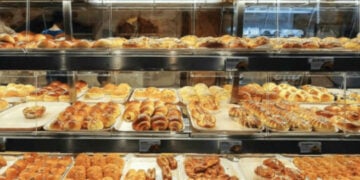Frozen foods are food items stored and preserved in cooling temperatures around -18 ℃ with the intent of commercializing them. The most common list of frozen foods in Nigeria includes fish, chicken, turkey, beef, gizzards, meat (pork), etc.
The frozen foods industry is a highly profitable venture in many parts of the world, particularly in Nigeria. This is due to population growth and an increasing demand for convenience foods. With relatively few players in the market, the industry is far from saturated.
Develop A Good Business Plan
Write a business plan first and stick to it. The purpose of putting a strategy in place first is to avoid any form of failure in the near future. This requires conducting thorough research and then drafting a feasibility report on the business with a focus on the frozen food industry in Nigeria.
Decide On Your Product Line
It’s advisable to commence with those products that enjoy higher popularity. Start with products that people in that area consume more. You will also need more freezers to separate your products if you are dealing with fish and poultry food.
Register Your Business
Frozen Foods Business in Nigeria will need Registration with the appropriate body for security reasons. It also serves as a protection for your business, because it keeps you abreast of what is happening within your sector.
Make Available Your Capital For Your Frozen Food Business
To start a frozen foods business in Nigeria, you will need a sufficient amount of capital to start and run it successfully. There are several ways to generate funds for your business, including loans from the government, microfinance banks, and grants.
Get A Suitable Location
It is very vital when you set up your frozen foods company. It can be your property or a leased store but the place should be open and available. It is not necessary that it must be in a market place, just a good store by the road. A hidden or secluded area is likely to not succeed in this business.
Get A Cold Room Power Supply
A cold room is a specially designed enclosure that is well insulated to prevent direct thermal flow out of the room in order to keep perishable frozen food items from spoiling. A Cold room typically uses electricity and a diesel generator, gas generator, or solar power.





